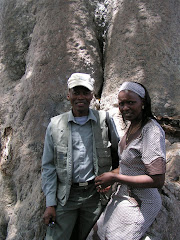Corporal punishment is still prevalent and entrenched in many societies of the world today. It is widespread despite its negative impact on children and adolescents. My intention is not open a can of worms by opening a debate on this controversial issue. I am merely highlighting what is perceived by many child rights activists as a potential threat to the full protection of children and adolescents. The continuous widespread of corporal punishment on children by older people under the guise of punishment or discipline violates their physical integrity and human dignity. This subsequently destroys their self esteem and impinges negatively on their development into fully fleshed adults.
Several speakers at the just ended World Congress III on Sexual Exploitation of Children and Adolescents, which was held in Rio de Janeiro on 25-28 November 2008, made it abundantly clearly that corporal punishment markedly increases children’s vulnerability to exploitation. Corporal punishment and the threat of it may be used by adults to coerce children into sexual relationships within or outside the family. Children are sometimes forced into early marriages under threat of corporal punishment, to which they succumb easily.
The fact that corporal punishment of children is currently socially accepted when all states criminalize even the most minor assault on adults truly reflects and reinforces the low status that children find themselves in. They being regarded as less than human, and relegated to objects and commodities that can be used for sexual gratification. This is the very status that allows them to become economic commodities in the sex industry particularly sex tourism.
Prohibiting corporal punishment of children gives them equal protection under the criminal law from assault, wherever they are and whoever the perpetrator is. This provides fundamental protection from all forms of assault, and asserts children’s right to full respect for their physical integrity and human dignity. This is a necessary step to eliminate sexual abuse and exploitation of children and adolescents.
The Committee on the Rights of the child alluded to the fact that, “addressing the widespread acceptance or tolerance of corporal punishment of children and eliminating it, in the family, schools and other settings, is not only an obligation of states parties under the Convention. It is also a key strategy for reducing and preventing all forms of violence in societies.” Abolishing corporal punishment will ensure that the legal frameworks put in place to address sexual exploitation extend to contributing factors. Replacing corporal punishment in families with positive parenting and non-violent relationships between adults and children will strengthen and protect families, reducing children’s vulnerability to sexual exploitation and abuse.
Delegates were urged to support the inclusion in the Document of the World Congress III on Sexual Exploitation of children and Adolescents of an explicit recommendation for full prohibition of all violence against children. This includes prohibition of corporal punishment of boys and girls. Children need more, not less protection from violence by the state, adults and other members of society.
The time for action is now, tomorrow never comes…
Subscribe to:
Post Comments (Atom)











No comments:
Post a Comment